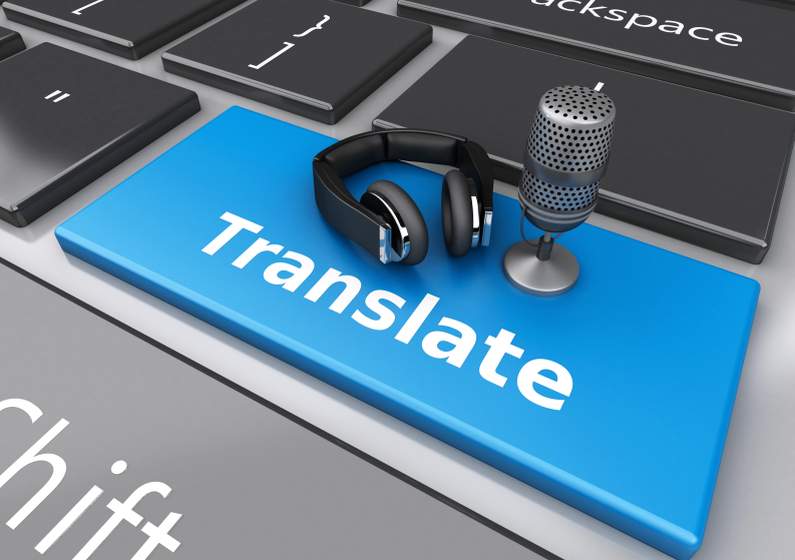If you work within the global market, it is highly likely that your business is in need of a linguistic service, such as that of an interpreter or a translator.
The need for languages has increased significantly due to cultural diversification and multilingualism, which can even occasionally take place within the same country.
If you wish to succeed globally, you will most certainly be all the more in need of an interpreting or translation service.
The terms “translator” and “interpreter” are often used interchangeably, as in the eyes of many people, they do the same job.
However, they carry out two very separate disciplines that require a very different set of skills and capabilities.
Translator vs interpreter: what are the differences?
Translators and interpreters work with foreign languages, in order to convey a message from a “source” language, into a “target” language.
As a result of these similarities, the two terms continue to be mixed up by the majority of people.
Nevertheless, we are going to explore 8 key points to help you differentiate a translator from an interpreter, and we are also going to establish which linguistic service your company is in need of.
-
Spoken word vs. written word
Even though the goal of interpreters and translators is to convey a message from one language to another, their methods differ.
Translators work on paper or on digital documents, and for the most part, translate into their first language.
They can use dictionaries, as well as other translation tools, which are specific to one language, in order to perfect their work.
They also have the chance to carry out research throughout the translation process.
On the other hand, interpreters verbally relay information, obtained from speech in another language.
They frequently work with two languages, and interpret what the speaker says in real time, in order to ensure the audience understands what is being said.
An interpreter can listen to and interpret more than one language at once.
More often than not, the interpretation is carried out by one or more professionals, who are on site, even though with technological advancements, certain interpreters now work remotely via conference calls, or over the phone.
For example, you will certainly need an interpreter for your call centre, seeing as its structure centres around direct contact with clients in order to gather leads, carry out of market research, or ensure that follow-up actions are carried out.
In certain cases, having an interpreter to hand will prove beneficial within the international market.
-
Costing
Translators versus interpreters: both base their rates on various factors, because they do not offer the same service.
A translator normally charges per word or by the page, whereas an interpreter will be more likely to charge an hourly rate.
-
Pace of work
As previously mentioned, interpreters deal with real-time speech, as opposed to translators, who translate written language.
This means that translators usually have time to undertake research in order to guarantee the quality of their translation, whereas interpreters can only carry out research surrounding the subject they are going to be dealing with beforehand.
Even though they are not particularly perceptible to a set schedule, translators still have deadlines to meet.
-
One language vs. two languages
You will entrust a translator to translate a document written in a foreign language, into their native language.
It’s quite rare for translators to translate their native language into another language, although it does sometimes happen.
On the other hand, interpreters must juggle between two, or even more languages, all whilst relaying the information both ways.
In a spoken conversation, they must first listen to, and interpret what the speaker is saying, and then repeat the same process for the other person present in the conversation.
-
Mobility
Due to the nature of their work, translators can work remotely, no matter where they are in the world, which is why companies have a large group of translators who they can work with.
This is because a large number of businesses choose to outsource translation services. For the most part, interpreters work face-to-face and in person.
This need for them to be present at work, reduces their range of recruitment possibilities.
However, thanks to advancements in video conferencing, they now have the opportunity to offer a virtual interpreting service.
There are excellent video conferencing solutions available on the market.
-
Use of resources
Generally speaking, translators have access to different resources, such as dictionaries, or computer assisted translation (CAT) tools throughout the whole translation process.
Some companies can have specific pieces of software that they prefer using, where they can manage vendor access from afar, allowing the translators to also have access.
Due to the sensitive nature of their job, interpreters use their memory and their knowledge of language as their primary resource, even more so because they do not have time to undertake research on the spot.
Only conference interpreters have the chance to carry out some research beforehand, if they are given the agenda of the event in advance.
-
Accuracy
Although interpreters go to great lengths to translate a message from one language to another with the highest degree of accuracy, this isn’t always easy, given the speed at which they work.
Once an interpreter has relayed the information, it is difficult to go back and correct a mistake, if they realise they have made one.
Translators have more time in front of them, and therefore they have more time to check their work before handing it over to their client.
-
Non-verbal communication
Translators only work with written language.
On the other hand, interpreters have a more holistic approach to their job. In other words, they take into consideration the tone of the speaker, their facial expressions, and their body language, in order to reflect the message in its entirety.
Translator vs interpreter: which one to choose?
Even though there are similarities between a translator and an interpreter, the biggest thing that separates the two, is the service which they provide.
As soon as you select which linguistic service you need, you must fully understand the differences between the role of an interpreter and that of a translator so that you can choose the right one for your company.
Our linguistic service agency here at BeTranslated offers you a translation and interpreting service adapted to your individual needs.
We work with highly qualified translators, each with their own expertise.






